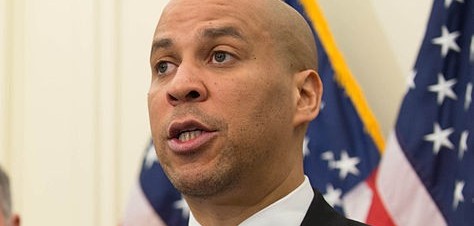On April 6th, Senator Cory Booker (D-NJ) introduced the Real Education for Healthy Youth Act (REHYA), a bill that would provide comprehensive sexuality education for young people. An earlier iteration of REHYA called the Responsible Education About Life (REAL) Act was first introduced in 2007 by the late Senator Frank Lautenberg (D-NJ) and Representative Barbara Lee (D-CA).
“The alarming statistics reveal that we are failing to adequately educate many of our young people so that they can make responsible, informed decisions regarding their sexual health,” said Senator Booker. “REHYA promotes access to life-saving, comprehensive, inclusive information on everything from prevention of disease and pregnancy to dating violence and sexual harassment on college campuses - all with the goal of helping young people lead happier, healthier lives.”
Jorian Rivera, a 23-year old youth living with HIV and ambassador for Advocates for Youth, expressed his frustration with the current sexual health education in the U.S. “How many of us have had sexual health education where a small chapter, paragraph discusses HIV and how bad it is? I want to get these students more educated to have a basic knowledge and know-how of what to do to protect themselves with safer sex tools, proper condom usage, proper pre-exposure prophylaxis pill, etc. I want more than just a paragraph,” Jorian stated at April 5th’s Congressional briefing honoring National Youth HIV/AIDS Awareness Day.
REHYA sets forth a vision for evidence-based sexual health education and outlines criteria for content in federally-funded education programs. Specifically, the Act:
- Supports access to information regarding anatomy and physiology; growth and development; healthy relationships; prevention of unintended pregnancies and sexually transmitted infections including HIV through abstinence and contraception; gender, gender identity, and sexual orientation; dating violence, sexual assault, bullying, and harassment prevention.
- Requires that programs be evidence based, medically accurate, developmentally, culturally, and linguistically appropriate; inclusive of lesbian, gay, bisexual, transgender, and questioning and queer (LGBTQ) students; and promotes education achievement, critical thinking, decision-making, and self-efficacy.
This Senate bill differs from the Representative Lee’s House bill H.R. 1706 by:
- Going further to repeal and reprogram Title V abstinence-only-until-marriage state-grant program funding to fund new REHYA grants
- Updating the amendment language to realign with the new Every Student Succeeds Act statute, which governs the U.S. K–12 public education policy and replaces the No Child Left Behind Act.
- Specifying that grant funds may be used by institutes of higher education to partner with community-based organizations with expertise in dating violence and sexual violence services
- Making language references pertaining to LGBTQ youth consistent throughout the bill
- Replacing “sexual assault” language with “sexual violence”
The Senate bill is compared side-by-side in a chart with how it complements and builds on the success of the Personal Responsibility Education Program and the Teen Pregnancy Prevention Program.
Put plainly, comprehensive sexuality education works. Young people who receive sexual health education are:
- 50% less likely to experience an unintended pregnancy;
- 31% less likely to contract an STI; and
- More likely to delay sexual activity and use contraception upon becoming sexually active.
With the reintroduction of the REYHA into the Senate, now both chambers of Congress have a real opportunity to improve comprehensive sex education and adolescent sexual health in the United States.








Comments
Comments